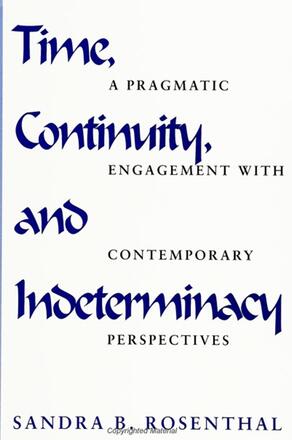
Time, Continuity, and Indeterminacy
A Pragmatic Engagement with Contemporary Perspectives
Alternative formats available from:
Offers a pragmatically oriented reconstruction of the central issues of time.
Description
Focusing on the issue of temporality, this book explores the assumptions guiding the frameworks of philosophers who have shaped the contours of the contemporary philosophical landscape, including Whitehead, Weiss, Derrida, McTaggart, and Heidegger. In the process, it remaps the terrain, often finding similarities where differences—some quite radical—are generally accepted, and finding differences where similarities are generally accepted. Rosenthal exposes the pragmatic perspective of temporality involving a radical rethinking of traditional ways of understanding and interrelating the key issues of time—discreteness and continuity; fixity and indeterminacy; potentiality, actuality, and possibility; past, present, and future.
Sandra B. Rosenthal is Provost Distinguished Professor of Philosophy at Loyola University. She has written a number of books including Mead and Merleau-Ponty: Toward A Common Vision (with Patrick L. Bourgeois) and Charles Peirce's Pragmatic Pluralism, both published by SUNY Press.
Reviews
"I find Rosenthal's range remarkable. She manages to show how McTaggart, Heidegger, Whitehead, and Mead (and a number of others) all address the same set of issues and suffer from some of the same shortcomings. Her interpretation of these divergent thinkers is rich and fair. She pounds away at the fundamental mistakes of overlooking the continuity of experience and rejecting the continuity of the self with the community. The pragmatic (but nevertheless metaphysical) position that emerges strikes me as eminently sound and, even though its details are not fully worked out, it constitutes an important step in the right direction in the effort to develop a sophisticated and philosophically defensible account of our experience of time." — John Lachs, author of The Relevance of Philosophy to Life
"The book is fascinating and offers a welcome and powerful account of one of the most fundamental and significant issues not only in contemporary philosophy but also in the tradition of Western civilization." — Carl R. Hausman, author of A Discourse on Novelty and Creation